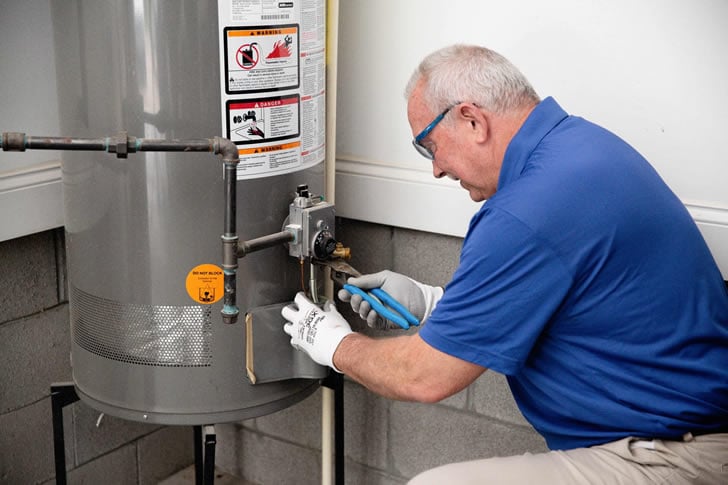Pis Cofins Restitution for Companies
This guide examines the process of obtaining PIS COFINS restitution for companies, a critical component of financial management in Brazil. Understanding the complexities of the PIS and COFINS taxes and their reimbursement procedures can significantly impact a company's cash flow and fiscal health. Expertise in navigating these processes can ensure maximum benefit and compliance.

Understanding PIS and COFINS for Companies
In Brazil, the PIS (Program for Social Integration) and COFINS (Contribution for the Financing of Social Security) are crucial federal taxes imposed on companies. These taxes are designed to fund social programs and are calculated on the company's gross revenues. Understanding how to manage and reclaim these taxes can be vital for a company's financial strategy, especially concerning cash flow management. Moreover, a deeper insight into these taxes not only aids in compliance but also empowers companies to leverage their financial position strategically in a competitive market.
The Importance of PIS and COFINS Restitution
Restituição Pis Cofins Empresas is a fiscal process that allows companies to reclaim overpaid amounts under these tax categories. For many businesses, effectively managing these restitutions can represent significant financial relief and improved cash liquidity. Companies often face intricate regulatory environments, requiring careful attention to detail and compliance with Brazilian tax laws. This aspect of financial management is not just a matter of getting back excess payments; it is about optimizing resources, improving profitability, and ensuring that the company functions efficiently within the broader economic framework of Brazil.
Navigating the Restitution Process
Achieving effective restitution requires a comprehensive understanding of eligibility criteria, documentation, and timelines. Companies must ensure they maintain accurate financial records and that all data complies with tax regulations. The process typically involves the submission of detailed tax documentation to the Receita Federal (Federal Revenue Service). Additionally, it is crucial to recognize that the process is not merely procedural; it also demands an analytical approach to identifying overpayments accurately, with a firm grasp on both legal expectations and financial implications.
Key Considerations for Restitution
- Eligibility: Companies must prove overpayment of PIS and COFINS taxes. This necessitates a comprehensive assessment of financial transactions and ensuring that all applicable revenues have been thoroughly analyzed.
- Documentation: Prepare all necessary financial records and filing details. This includes meticulous record-keeping practices and possibly correcting faulty claims from the past to ensure future compliance.
- Compliance: Adhere strictly to the guidelines provided by tax authorities. Continuous changes in legislation and tax requirements mean that businesses need to stay updated on compliance protocols to avoid any pitfalls that could hinder their restitution claims.
Incentives and Risks
While the potential financial benefits of reclaiming PIS and COFINS overpayments are significant, companies must also be aware of associated risks. Inaccuracies or discrepancies in tax declarations can lead to audits and penalties that could outweigh any gains from the restitution process. Thus, leveraging expertise in tax law is advisable to navigate the PIS and COFINS landscape efficiently. This expertise can come from internal resources within a company, but often it is prudent to engage external consultants who specialize in Brazilian tax laws to minimize risks effectively.
Comparing Banking Incentives
While managing financial strategies, companies might also consider optimizing their business accounts. Many banks offer bonuses for specific actions upon opening an account, providing additional financial incentives. This can be an important aspect of cash management as businesses look to maximize returns on their operational accounts while still maintaining liquidity to meet obligations.
| Bank Name | Account Type | Bonus Condition & Amount |
|---|---|---|
| Bank of America | Personal Checking | Deposit $2,000+ in 90 days for $200 bonus |
| Chase Bank | Total Checking | One direct deposit within 90 days for $300 bonus |
| Citibank | Regular Checking | Two direct deposits totaling $6,000+ in 90 days for $450 bonus |
| Wells Fargo | Easy Checking | Deposit $1,000+ within 90 days for $200 bonus |
| PNC Bank | Virtual Wallet | Set up direct deposit for $50 bonus |
Source: Banks' official websites.
Steps to Secure Banking Bonuses
Companies interested in taking advantage of banking incentives should follow these steps:
- Review account types and select one that aligns with business needs. This may require comparing account functionalities, fees, and terms to determine the best fit for the company's operational requirements.
- Fulfill the bonus conditions, such as making the necessary deposits within the stipulated time frame. It is critical to have a clear cash flow plan in place to meet these requirements without compromising liquidity.
- Maintain the account in compliance with the bank's terms. Continuous monitoring of account activity and adherence to bank policies can prevent any issues that may lead to the forfeiture of bonuses.
FAQs
What is the primary purpose of PIS and COFINS?
These taxes are designed to fund social programs and social security in Brazil. Their implementation plays a significant role in bolstering the country's social welfare system and facilitating broader economic stability.
Can all companies claim PIS and COFINS restitutions?
Eligibility depends on demonstrating overpayment of these taxes, adhering to tax laws, and having requisite documentation. This process encourages companies to adopt meticulous tax planning strategies and ensures a deeper understanding of their tax liabilities.
What are the common pitfalls in claiming PIS and COFINS restitution?
The main pitfalls include inaccurate documentation and non-compliance with tax regulations, which can lead to penalties. Moreover, delays in submission or failure to meet the requisite documentation requirements can also hinder successful claims.
Are banking bonuses automatic upon opening an account?
No, specific conditions must be met to qualify for bonuses. This requires businesses to remain proactive in managing their banking relationships and understanding the nuances of their chosen financial products.
Expanding on the Implications of PIS and COFINS for Companies
It is essential to note that the implications of PIS and COFINS extend beyond mere taxation. They can significantly influence various aspects of corporate financial management, including pricing strategy, cash flow analysis, and overall business profitability. Understanding and effectively managing these taxes can lead to a competitive advantage in the Brazilian market.
Strategic Approaches to Managing PIS and COFINS
To navigate the complexities of PIS and COFINS, companies can adopt several strategic approaches:
- Consultation with Tax Professionals: Engaging tax experts who specialize in Brazilian taxation laws can assist companies in navigating the complex landscape of PIS and COFINS. These professionals can offer insights into the latest tax reforms and advise on best practices for tax planning and compliance.
- Invest in Technology: Implementing accounting software that tracks tax payments and revenues can improve accuracy in financial reporting. Many businesses are now turning to integrated financial management solutions that provide tools for tax calculation and reporting.
- Staff Training: Ensuring that employees responsible for tax compliance are adequately trained can reduce errors in tax filings. Regular training sessions can keep staff updated on relevant tax issues, including changes to legislation impacting PIS and COFINS.
- Regular Reviews of Tax Positions: Periodic audits of tax positions can help identify potential overpayments or miscalculations. Companies may want to establish a routine schedule for reviewing their tax positions to ensure compliance and optimize their refund claims.
The Broader Economic Context
The implications of PIS and COFINS are also contextualized within Brazil's broader economic environment. Economic cycles can affect tax collections and the issuance of refunds. For instance, during economic downturns, tax revenues may decrease, impacting the government's ability to fund social programs. This cyclical nature underscores the importance of PIS and COFINS in contributing to Brazil's economic resilience.
Furthermore, the contribution of PIS and COFINS to social security programs highlights a social contract between the government and its citizens, which emphasizes the need for companies to view these taxes not only as a cost but as an investment in the future stability of the communities in which they operate.
Looking Ahead: Trends and Future Considerations
As Brazil continues to adjust its economic policies and tax structures, it is essential for companies to remain vigilant. Trends such as digital transformation and globalization may lead to changes in how PIS and COFINS are interpreted and managed. For instance, e-commerce and service-based industries may see new tax implications as consumption patterns evolve.
Moreover, businesses must also prepare for potential policy changes that could alter the landscape of tax laws governing PIS and COFINS. Staying informed about legislative movements and participating in industry consultations can empower businesses to advocate for tax fairness and clarity.
Conclusion
Understanding PIS and COFINS is critical for businesses operating in Brazil. With the potential for significant financial implications, companies must actively engage in effective tax management strategies and restitution processes. By leveraging expert advice, investing in technology, and reviewing financial positions regularly, businesses can navigate these taxes successfully. Furthermore, recognizing the broader economic context and future trends will allow companies to not only comply with legal requirements but also to nurture their financial health in a competitive landscape. As PIS and COFINS continue to play a pivotal role in Brazil's socio-economic framework, it is imperative for businesses to adapt and position themselves for sustainable success.










